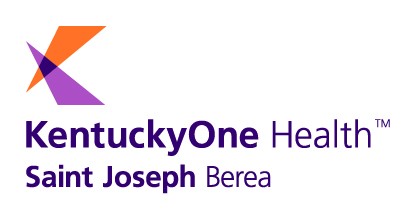Winter Weather Can Increase Risk of Heart-Related Illness - Archived

For More Information:
Katie Heckman, Manager, Community Relations
859.986.6535
[email protected]
Winter Weather Can Increase Risk of Heart-Related Illness
Americans are 30 percent more likely to suffer heart attacks during colder months
Berea, Ky. (December 8, 2016) – This December, Saint Joseph Berea, part of KentuckyOne Health, is encouraging the public to educate themselves about heart health for the winter months. Due to physical and environmental factors, Americans are more than 30 percent more likely to suffer a heart attack during the winter, which is why it is important to protect your heart as temperatures drop.
“The winter months can put even a healthy person at risk for a heart attack or other heart health problems,” said Donny Hardy, MD, KentuckyOne Health Primary Care Associates in Berea. “To help protect yourself and those around you, be aware of the warning signs of heart attack, which include pressure, tightness or pain in the chest or arms, nausea, shortness of breath, cold sweat, lightheadedness and fatigue.”
Very cold weather can increase heart rate and blood pressure, putting your heart at risk. Low temperatures cause blood vessels to narrow, requiring more pressure to force blood through narrowed veins and arteries, which increases blood pressure. These factors can increase your risk of having a heart attack or stroke.
Winter physical activities, such as shoveling snow or exercising in the cold, can also lead to heart-related illness. These activities cause your blood vessels to constrict and raise your blood pressure even further. Your heart also has to work much harder to keep your body warm in the cold. With heart rate and blood pressure already elevated due to the low temperatures, this can cause blood clots to form and provoke coronary artery spasms.
Holiday stress can also lead to heart problems. People who display symptoms of heart-related illnesses might delay getting treatment because they don’t want to disrupt holiday festivities. Or, holiday travelers might take longer to find medical care away from home, which heightens the risk.
Overindulgence during the holidays can also put your heart in danger. At family gatherings and holiday parties, people tend to consume alcohol and eat more than usual, including unhealthy foods that are high in sodium. Busy schedules due to holiday engagements cause people to neglect their exercise routines, which can put even more strain on the heart.
“Many people let their health take a backseat during the winter, but it’s actually even more important to ensure your heart is healthy during the colder months,” said Dr. Hardy. “Try to maintain a healthy lifestyle throughout the holiday season, and talk to your primary care provider about ways to protect your heart during the colder months.”
In order to stay healthy during the winter, it is important to maintain a balanced diet, including at least five servings of fruits and vegetables per day. A minimum of 75 minutes of safe exercise per week is recommended for heart health.
When shoveling snow or exercising outdoors, remember to dress warmly to keep your blood flowing, and warm up your muscles prior to doing physical activity. Do not drink alcohol before or immediately after shoveling snow, as this can increase your risk for heart attack.
If you or someone near you is presenting symptoms of a heart attack, call 911 immediately. Then, if you are able, perform hands-only CPR by placing your hands on the victim’s chest and administering compressions hard and fast, 100 times per minute, in the center of the chest. Don’t stop until help arrives.
To learn more about heart disease risk factors or to take a heart health risk assessment, visit www.kentuckyonehealth.org/heart-disease-risk-factors.
About KentuckyOne Health
KentuckyOne Health, the largest and most comprehensive health system in the Commonwealth, has more than 200 locations, including hospitals, physician groups, clinics, primary care centers, specialty institutes and home health agencies in Kentucky and southern Indiana. KentuckyOne Health is dedicated to bringing wellness, healing and hope to all, including the underserved. The system is made up of the former Jewish Hospital & St. Mary’s HealthCare and Saint Joseph Health System, along with the University of Louisville Hospital and James Graham Brown Cancer Center. KentuckyOne Health is proud of and strengthened by its Catholic, Jewish and academic heritages.
Publish date:
Friday, December 09, 2016